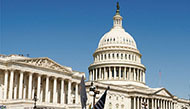China’s Rock Music Festivals Obtain the State’s Blessing
ZHENJIANG, China - A curious thing happened in October at the Midi Music Festival, China’s oldest and boldest agglomeration of rock, funk, punk and electronica.
Performers musically criticized the country’s leaders, tattooed college students sold antigovernment T-shirts and an unruly crowd of heavy metal fans giddily torched a Japanese flag that had been emblazoned with expletives.
Curious, because the event, a four-day free-for-all of Budweiser, crowd-surfing and camping, was sponsored by the local Communist Party, which spent $2.1 million to turn cornfields into festival grounds, pay the growling punk bands and clean up the detritus left by 80,000 attendees.
The city cadres also provided an army of white-gloved police officers, earplugs in place . The incongruity of security agents facilitating the sale of cannabis- themed merchandise was not lost on the festival’s organizer, Zhang Fan. “The government used to see rock fans as something akin to a devastating flood or an invasion of savage beasts,” said Mr. Zhang, a handful of whose events have been canceled by skittish bureaucrats since he pioneered the Chinese music festival in 2000. “Now we’re all part of the nation’s quest for a harmonious society.”
He is not complaining, nor are the dozens of malnourished musicians who finally have a way to monetize their craft . The shift in official sentiment ? and among state-backed companies paying to have their logos splashed across the stage ? has led to an explosion of festivals across China. In 2008, there were five multiday concerts, nearly all in Beijing.
This year there have already been more than 60, from the northern grasslands of Inner Mongolia to the southern highlands of Yunnan Province. Without exception the festivals have been staged with the help of local governments that have come to realize that pierced rockers flailing around a mosh pit are not necessarily interested in upending single-party rule.
More importantly, the governments have decided, for now at least, that music festivals can deliver something that even the most seasoned propagandists cannot spin out of thin air: coolness.
Too much of a good thing, however, can have its downside. Crowds have thinned as events compete for the limited pool of fans able to afford the 150 yuana- day (about $22) admission. Another problem is that China’s independent music scene is still in its adolescence, with quality and originality in short supply. Skeptics say the government is simply trying to co-opt youth culture .
Yang Haisong of P.K.14 could not help but feel cynical as he looked around at the Modern Sky Music Festival in Beijing. “The government used to see us as dangerous,” he said. “Now they see us as a market.”
스마터리빙
more [ 건강]
[ 건강]이제 혈관 건강도 챙기자!
[현대해운]우리 눈에 보이지 않기 때문에 혈관 건강을 챙기는 것은 결코 쉽지 않은데요. 여러분은 혈관 건강을 유지하기 위해 어떤 노력을 하시나요?
 [ 건강]
[ 건강]내 몸이 건강해지는 과일궁합
 [ 라이프]
[ 라이프]벌레야 물럿거라! 천연 해충제 만들기
 [ 건강]
[ 건강]혈압 낮추는데 좋은 식품
[현대해운]혈관 건강은 주로 노화가 진행되면서 지켜야 할 문제라고 인식되어 왔습니다. 최근 생활 패턴과 식생활의 변화로 혈관의 노화 진행이 빨라지고
사람·사람들
more많이 본 기사
- 새해 첫날 대형화재 참사… 155명 … 1
- 해외 송금시 1% 세금 1월1일부터 부과 개시
- 또 일가족 살해·자살 4명 시신 발견 ‘비극’
- 한인 마켓에서 사라진 ‘플라스틱 봉투’
- ‘김태희♥’ 비, 난리통 연예계 속 의미심장 일침.. “나태하면 사건·사고 나”
- ‘255만 7,047명’ 미국내 한인… 1
- “키스, 불륜 맞지만 숙행은 억울해”..상간남 입 열었다
- “새해 복 많이 받으세요!” 2026 ‘병오년’ 힘찬 출발
- 오바마케어 보조금 결국 종료… 새해 최대 쟁점으로
- [신년 사설] 붉은 말의 힘찬 기상·역동성으로 도전과 성취를
- 변종 수퍼독감 ‘비상’ 사망자 3,100명 넘어
- 시니어 ‘최소인출’ 미준수… 세금 불이익
- 활동적 은퇴자 급증…한인시니어센터 “다 찼어요”
- 새해초 폭우 강타… 엔젤레스 산악도로 붕괴
- 코란에 손 얹고… 뉴욕 첫 무슬림시장 취임 선서
- “트럼프 리조트 마사지사들, 엡스타인에 방문 서비스”
- 미군에 쫓기는 베네수行 유조선 감싼 … 1
- 유명 성우 송도순 별세
- 나나, 강도 피해→역고소 사건에 입 열었다.. “말도 안 되는 상황”
- 온라인에 가짜 광고 ‘렌트 사기’ 기승
- [신년 축시] 새해 아침
- 건국 250주년 워싱턴 모뉴먼트 라잇쇼
- 美스타트업서 가장 인기있는 창업자 학위는…석박사 아닌 ‘중퇴’
- “소확행<작지만 확실한 행복> 즐겨요”
- KCM, 세 아이 아빠 됐다…지난달 셋째 득남
- ‘우크라서 날아온 감사의 국기’
- 희망 가득 안고 출발… 새해 첫날 지구촌 곳곳 불꽃놀이 축포
- KAPAC 워싱턴, “풀뿌리 시민의 힘 보여주자”
- 대한항공, 새해 첫 고객맞이 행사
- 연말 샤핑 ‘역대 최고’ 사상 첫 1조달러 돌파
- 지난해 VA 최고 인기 술 티토스 보드카 1위 영예
- 건강보험 보조금 종료…중간선거 낀 새해 최대 정치쟁점으로
- [신년 휘호] 光明大道 (광명대도)
- 李대통령, 5일 시진핑과 회담… “한반도 문제·한한령 해결 모색”
- 이국주 “AI와 결혼한단 말 이해..나도 친해져 조언까지”
- LA카운티 ‘원숭이두창’ 감염 발생
- [각계 신년메시지] “희망찬 새해, … 1
- [미리 보는 CES 2026 ] “올해 핵심 트렌드… AI·로봇·모빌리티·디지털 건강”
- “美, 평택기지 비행대대 비활성화”…주한미군 감축 관련성 주목
- 라우든 일대 3인조 구리선 절도단 체포…피해액 수백만불
- [손영아의 문화산책] ‘슈만의 연가’… 170년 전 멈춘 시간, 끝나지 않은 사랑
- CD 금리 하락, 주식은 불안… ‘원금 지키며 시장에 참여하는 방법’
- 보아 없는 SM, 상상 가능할까.. ‘25년 동행’ 거취에 쏠린 관심
- LA 등 배치 주방위군 ‘불법’… 완… 1
- 병오년 신년 휘호
- ‘공천헌금·비위 의혹’ 일파만파에…鄭 “끊어내겠다”며 강경조치
- 건강보험 보조금 종료, 최대 정치쟁점으로
- 중부 캘리포니아 ‘한인 이민사’ 나왔다
- 빅뱅 출신 탑, 2026년 가수로 전격 컴백
- 워싱턴한인교회협의회 신년감사예배
1/5지식톡

-
 미 육군 사관학교 West Poin…
0
미 육군 사관학교 West Poin…
0https://youtu.be/SxD8cEhNV6Q연락처:wpkapca@gmail.comJohn Choi: 714-716-6414West Point 합격증을 받으셨나요?미 육군사관학교 West Point 학부모 모…
-
 ☝️해외에서도 가능한 한국어 선생님…
0
☝️해외에서도 가능한 한국어 선생님…
0이 영상 하나면 충분합니다!♥️상담신청문의♥️☝️ 문의 폭주로 '선착순 상담'만 진행합니다.☎️ : 02-6213-9094✨카카오톡ID : @GOODEDU77 (@골뱅이 꼭 붙여주셔야합니다…
-
 테슬라 자동차 시트커버 장착
0
테슬라 자동차 시트커버 장착
0테슬라 시트커버, 사놓고 아직 못 씌우셨죠?장착이 생각보다 쉽지 않습니다.20년 경력 전문가에게 맡기세요 — 깔끔하고 딱 맞게 장착해드립니다!장착비용:앞좌석: $40뒷좌석: $60앞·뒷좌석 …
-
 식당용 부탄가스
0
식당용 부탄가스
0식당용 부탄가스 홀세일 합니다 로스앤젤레스 다운타운 픽업 가능 안녕 하세요?강아지 & 고양이 모든 애완동물 / 반려동물 식품 & 모든 애완동물/반려동물 관련 제품들 전문적으로 홀세일/취급하는 회사 입니다 100% …
-
 ACSL 국제 컴퓨터 과학 대회, …
0
ACSL 국제 컴퓨터 과학 대회, …
0웹사이트 : www.eduspot.co.kr 카카오톡 상담하기 : https://pf.kakao.com/_BEQWxb블로그 : https://blog.naver.com/eduspotmain안녕하세요, 에듀스팟입니다…
케이타운 1번가
오피니언
 손영아 문화 칼럼니스트 / YASMA7 대표
손영아 문화 칼럼니스트 / YASMA7 대표 [손영아의 문화산책] ‘슈만의 연가’… 170년 전 멈춘 시간, 끝나지 않은 사랑
 김재천 서강대 국제대학원 교수
김재천 서강대 국제대학원 교수 [김재천 칼럼] 2026년, 미·중 대타협은 가능할까
 조지 F·윌 워싱턴포스트 칼럼니스트
조지 F·윌 워싱턴포스트 칼럼니스트 [조지 F. 윌 칼럼] AI 투자 붐이 걱정된다면?… 역사적 맥락을 보라
 이희숙 시인·수필가
이희숙 시인·수필가 [금요단상] 차가운 길, 이불 한 장의 온기
 한영일 / 서울경제 논설위원
한영일 / 서울경제 논설위원 [만화경] 33년만에 퇴역하는 장보고함

[왈가 왈부] 이혜훈 ‘정말 널 죽였으면’ 폭언, 장관직 수행 가능할까요
 정숙희 논설위원
정숙희 논설위원샴페인, 마지막 날과 첫날을 위하여
 조지 F·윌 워싱턴포스트 칼럼니스트
조지 F·윌 워싱턴포스트 칼럼니스트 [조지 F. 윌 칼럼] 저무는 2025년에 안도의 한숨
 김동찬 시민참여센터 대표
김동찬 시민참여센터 대표 [미국은 지금] 책임 있는 자본 없으면 커뮤니티 미래도 없다
1/3지사별 뉴스

지방세 공제한도 1만→4만달러로 상향
2026년 새해에도 뉴욕과 뉴저지 한인들의 일상에 크고 작은 영향을 미치는 다양한 규정과 법규가 새롭게 바뀌게 된다. 당장 1일부터 뉴욕시 최…
■ 사고- 한동대·뉴욕한인청소년센터 국제여름캠프

건국 250주년 워싱턴 모뉴먼트 라잇쇼
워싱턴 DC 내셔널 몰 중심에 위치한 워싱턴 모뉴먼트(Washington Monument)가 화려한 불빛으로 장식됐다. 지난 31일 새해 카운…
“소확행<작지만 확실한 행복> 즐겨요”

병오년 2026년 시작을 알리는 꽃가루
지난달 12월 31일 뉴욕 타임스퀘어 에서 열린 볼 드롭 행사에서 찬란한 볼이 새해를 알린 직후 2026년 1월 1일 0시를 기해 이날 메인 …
중부 캘리포니아 ‘한인 이민사’ 나왔다

오늘 하루 이 창 열지 않음 닫기 




















































.png)


댓글 안에 당신의 성숙함도 담아 주세요.
'오늘의 한마디'는 기사에 대하여 자신의 생각을 말하고 남의 생각을 들으며 서로 다양한 의견을 나누는 공간입니다. 그러나 간혹 불건전한 내용을 올리시는 분들이 계셔서 건전한 인터넷문화 정착을 위해 아래와 같은 운영원칙을 적용합니다.
자체 모니터링을 통해 아래에 해당하는 내용이 포함된 댓글이 발견되면 예고없이 삭제 조치를 하겠습니다.
불건전한 댓글을 올리거나, 이름에 비속어 및 상대방의 불쾌감을 주는 단어를 사용, 유명인 또는 특정 일반인을 사칭하는 경우 이용에 대한 차단 제재를 받을 수 있습니다. 차단될 경우, 일주일간 댓글을 달수 없게 됩니다.
명예훼손, 개인정보 유출, 욕설 등 법률에 위반되는 댓글은 관계 법령에 의거 민형사상 처벌을 받을 수 있으니 이용에 주의를 부탁드립니다.
Close
x